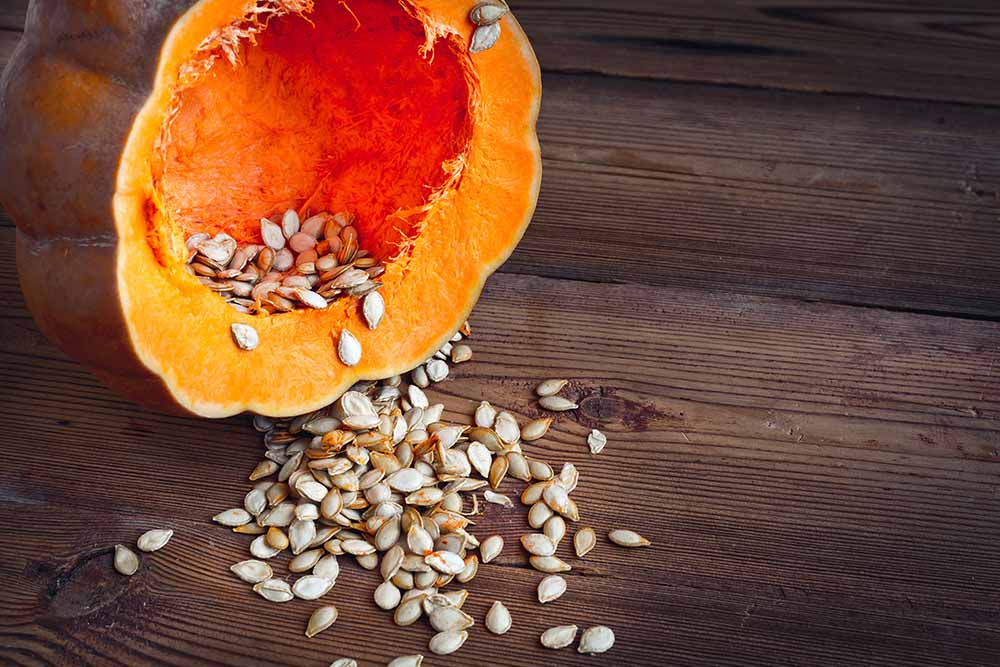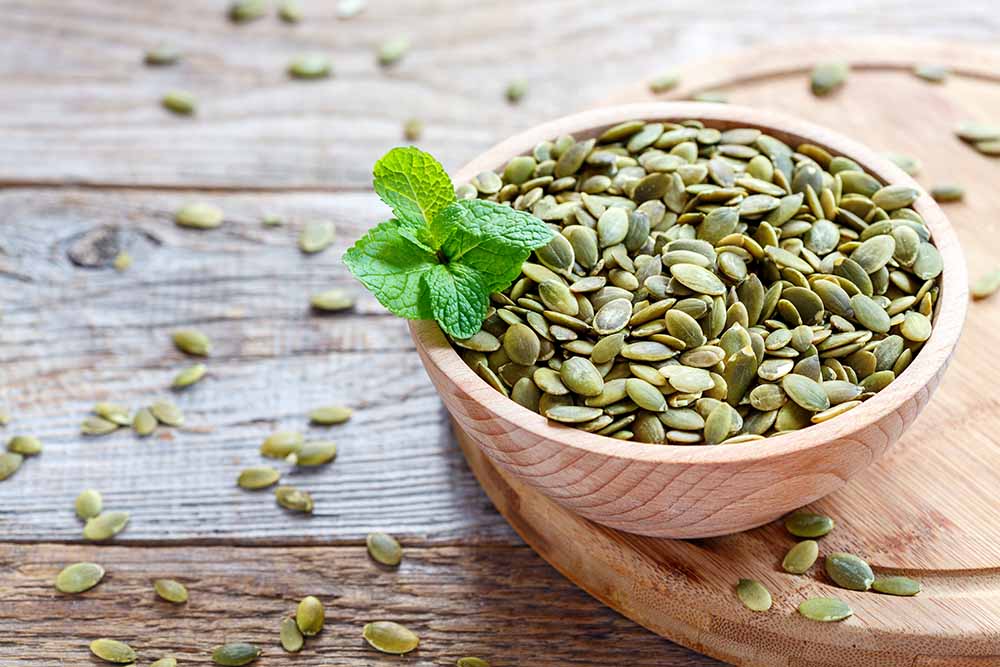Pumpkin seeds, often overshadowed by their larger cousin, the pumpkin, are small yet mighty nutritional powerhouses. These seeds, also known as pepitas, are packed with essential nutrients and offer a myriad of health benefits. Whether you enjoy them as a snack or incorporate them into your meals, pumpkin seeds can be a tasty and nutritious addition to your diet. In this comprehensive guide, we'll delve into the impressive health benefits, nutritional value and various uses of pumpkin seeds.
Benefits of Pumpkin Seeds
1. Rich in Nutrients
Pumpkin seeds are a nutrient-dense snack, providing a wide array of vitamins and minerals. They are an excellent source of protein, healthy fats, fibre and essential micronutrients like manganese, phosphorus and iron. These nutritional powerhouses can help support overall health and well-being.
2. Improves Heart Health
Including pumpkin seeds in your diet can have a positive impact on heart health. They are rich in heart-healthy monounsaturated fats, antioxidants and fibre, which can help lower bad cholesterol levels and reduce the risk of heart disease.

3. Improves Digestion
Pumpkin seeds are a good source of dietary fibre, which aids in digestion. Fibre promotes regular bowel movements, prevents constipation and supports a healthy gut microbiome.
4. Regulates Blood Sugar
Pumpkin seeds may help regulate blood sugar levels due to their high magnesium content. Magnesium plays a crucial role in insulin function, helping to maintain stable blood sugar levels.
5. Rich in Antioxidants
Antioxidants, such as vitamin E and carotenoids found in pumpkin seeds, combat oxidative stress and reduce the risk of chronic diseases. These antioxidants help protect cells from damage caused by free radicals.
6. Rich in Magnesium
Magnesium is an essential mineral for various bodily functions, including muscle and nerve function, blood pressure regulation, and bone health. Pumpkin seeds are a fantastic source of magnesium, with a 1-ounce serving providing nearly 40% of the daily recommended intake.
7. Helps in Weight Management
Despite being calorie-dense, pumpkin seeds can aid in weight management due to their high protein and fiber content. They promote a feeling of fullness, reducing overall calorie consumption and supporting weight loss goals.
8. Improves Bone Health
Pumpkin seeds are a rich source of minerals like phosphorus, magnesium and zinc, all of which are vital for maintaining strong and healthy bones. Incorporating pumpkin seeds into your diet can contribute to better bone density and overall bone health.
Uses of Pumpkin Seeds
Pumpkin seeds are incredibly versatile and can be enjoyed in various ways:
Snacking: Roasted pumpkin seeds make for a delicious and nutritious snack.
Salad Topping: Sprinkle pumpkin seeds on salads for added crunch and flavour.
Smoothie Additions: Blend pumpkin seeds into your smoothies for a protein and nutrient boost.
Baking: Incorporate pumpkin seeds into bread, muffins, and cookies for a delightful nutty flavour.
Trail Mix: Create your own trail mix with pumpkin seeds, nuts and dried fruits.

Nutritional Values
Here's a snapshot of the nutritional values of a 1-ounce (28-gram) serving of pumpkin seeds:
Calories: 151
Protein: 7 grams
Healthy Fats: 13 grams
Fiber: 1.7 grams
Carbohydrates: 5 grams
Magnesium: 37% of the Daily Value (DV)
Phosphorus: 33% DV
Iron: 23% DV
Zinc: 14% DV
Conclusion
Pumpkin seeds are a nutritional powerhouse, offering a wide range of health benefits and culinary possibilities. Whether you're looking to improve heart health, support digestion, regulate blood sugar or enhance your overall nutrient intake, these tiny seeds have got you covered. So, next time you carve a pumpkin or enjoy a pumpkin-based dish, don't forget to save and savour the nutritious treasure within – pumpkin seeds.
FAQs
Can I eat pumpkin seeds if I have nut allergies?
Yes, pumpkin seeds are generally safe for individuals with nut allergies. However, if you have a history of severe allergies, it's advisable to consult with a healthcare provider before adding pumpkin seeds to your diet.
Are there any potential side effects of consuming too many pumpkin seeds?
Consuming pumpkin seeds in moderation is safe for most people. However, excessive consumption may lead to digestive discomfort or calorie intake concerns, as they are calorie-dense. It's best to enjoy them as part of a balanced diet.
Can I eat pumpkin seeds with the shell on?
While it's possible to eat pumpkin seeds with the shell, they are typically enjoyed without the shell due to their tough and fibrous texture. The inner seed, known as the pepita, is more commonly consumed.